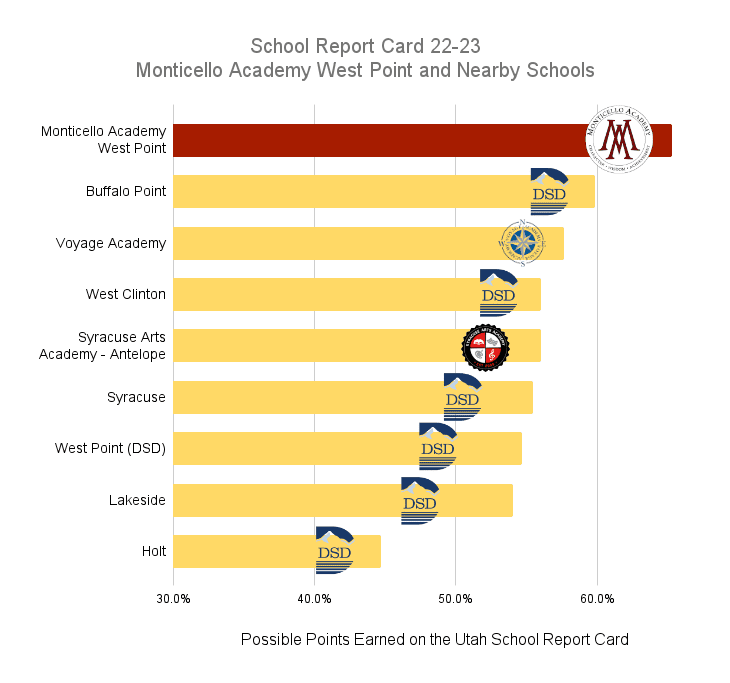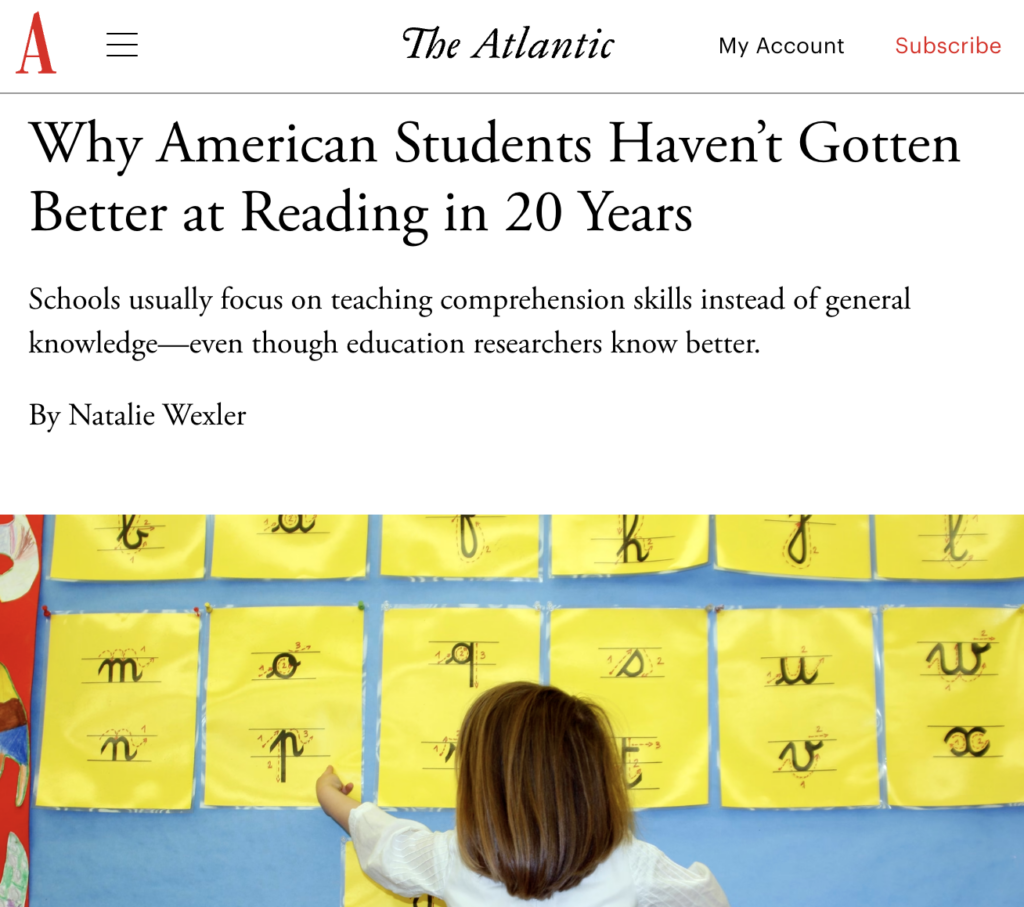January 13, 2024
Oops! Most schools forgot about the importance of knowledge.
The Problem
Did you know that most schools don’t have a knowledge curriculum? They have a skills curriculum.
What does that mean?
It means that they don’t have a plan for teaching students many of the things we expect students to learn in school, like history, literature, and the arts. Instead they focus on the bland “skills” called for by state standardized tests.
Instead of teaching great books, they teach kids to read and answer questions.
Instead of wrestling with big ideas, they practice using “context clues” and other skills on the state test.
Instead of learning about the great eras and achievements of human history, they learn vague “social studies skills” that might sound smart but are actually curiosity-killers, like this one from the 3rd grade state standards: “Evaluate key factors that determine how a community develops.” (Huh?)
How We Solve It
At Monticello Academy, it’s different. We have a content-rich curriculum, with history as its backbone and infused with literature and the arts. When you ask your child, “What did you learn at school today?” instead of the typical shrug of the shoulders–“I don’t know….we did some worksheets”)–you’re likely to hear enthusiastic responses:
- “We learned about the Egyptian pharaohs!” (1st grade)
- “We learned about when when the British burned the White House in the War of 1812!” (2nd grade)
- “We learned about the Black Plague!” (4th grade)
- “We learned about the Reign of Terror in the French Revolution!” (6th grade)
In every grade level, starting in kindergarten, we strategically building student knowledge of U.S. and World history and geography, classic works of art and music, and great works of literature.
Results
But what about those all-important tests? With an emphasis on rich content knowledge, our students actually outperform other students–even on skills tests! Monticello students achieved the highest average school report scores among nearby schools in northwest Davis County.

The great thing about putting knowledge at the center of a curriculum is that research shows that knowledge is actually one of the most important foundations for strong academic performance.
Check out this article from the Atlantic Monthly about why the skills-based, test-driven approach to education has been counter-productive.
Conclusion
So why don’t more schools focus on knowledge?
For one, because it’s hard.
What knowledge will be taught? There’s so much of it, and deciding which facts to include or leave out can be difficult (and contentious). At Monticello Academy, we use the Core Knowledge Sequence. For over thirty years, a diverse body of educators and scholars, led by E.D. Hirsch, have organized a body of knowledge–the things we would expect a patriotic and knowledgeable American to know–into topics for each grade level. This allows our students to gain knowledge in a coherent, chronological, and unforgettable way.
Our knowledge-rich curriculum is a key part of our mission to give students the foundation they need to succeed in all areas of academics and life.


